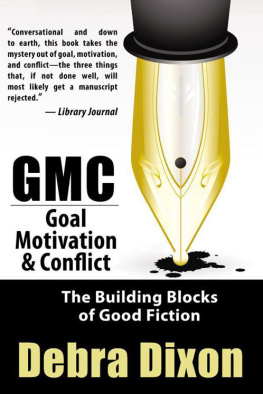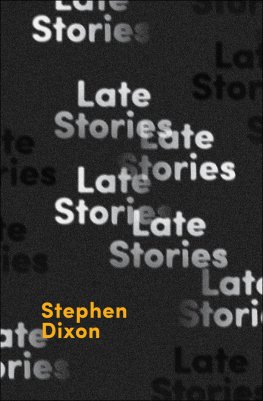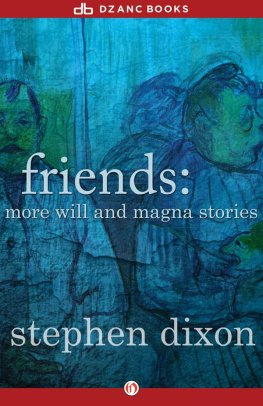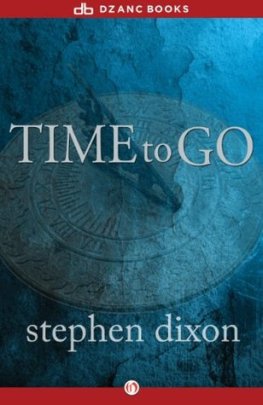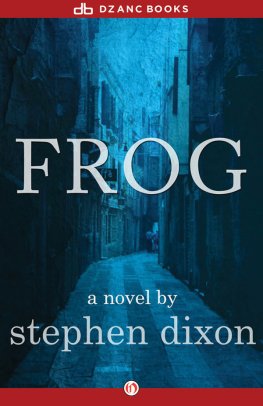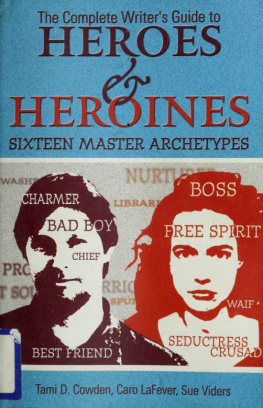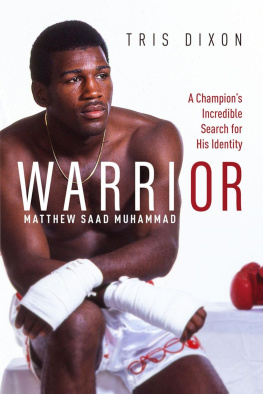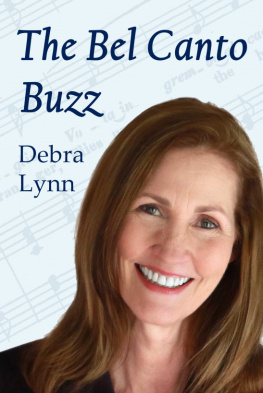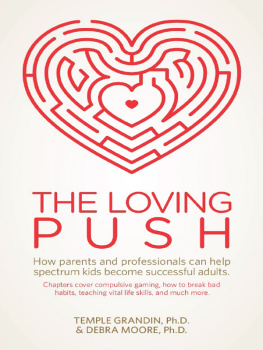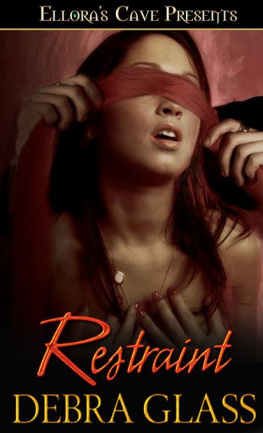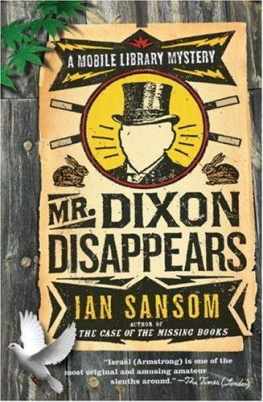Debra Dixon - GMC: Goal, Motivation, and Conflict
Here you can read online Debra Dixon - GMC: Goal, Motivation, and Conflict full text of the book (entire story) in english for free. Download pdf and epub, get meaning, cover and reviews about this ebook. year: 2013, publisher: Bell Bridge Books, genre: Detective and thriller. Description of the work, (preface) as well as reviews are available. Best literature library LitArk.com created for fans of good reading and offers a wide selection of genres:
Romance novel
Science fiction
Adventure
Detective
Science
History
Home and family
Prose
Art
Politics
Computer
Non-fiction
Religion
Business
Children
Humor
Choose a favorite category and find really read worthwhile books. Enjoy immersion in the world of imagination, feel the emotions of the characters or learn something new for yourself, make an fascinating discovery.
- Book:GMC: Goal, Motivation, and Conflict
- Author:
- Publisher:Bell Bridge Books
- Genre:
- Year:2013
- Rating:5 / 5
- Favourites:Add to favourites
- Your mark:
- 100
- 1
- 2
- 3
- 4
- 5
GMC: Goal, Motivation, and Conflict: summary, description and annotation
We offer to read an annotation, description, summary or preface (depends on what the author of the book "GMC: Goal, Motivation, and Conflict" wrote himself). If you haven't found the necessary information about the book — write in the comments, we will try to find it.
GMC: Goal, Motivation, and Conflict — read online for free the complete book (whole text) full work
Below is the text of the book, divided by pages. System saving the place of the last page read, allows you to conveniently read the book "GMC: Goal, Motivation, and Conflict" online for free, without having to search again every time where you left off. Put a bookmark, and you can go to the page where you finished reading at any time.
Font size:
Interval:
Bookmark:
by
Debra Dixon

Bell Bridge Books
This is a work of fiction. Names, characters, places and incidents are either the products of the authors imagination or are used fictitiously. Any resemblance to actual persons (living or dead), events or locations is entirely coincidental.

Bell Bridge Books
PO BOX 300921
Memphis, TN 38130
Ebook ISBN: 978-1-61194-318-4
Bell Bridge Books is an Imprint of BelleBooks, Inc.
Copyright 1996 by Debra Dixon
Printed and bound in the United States of America.
All rights reserved. No part of this book may be reproduced in any form or by any electronic or mechanical means, including information storage and retrieval systems, without permission in writing from the publisher, except by a reviewer, who may quote brief passages in a review.
A mass market edition of this book was published by Gryphon Books for Writers in 1996
We at BelleBooks enjoy hearing from readers.
Visit our websites www.BelleBooks.com and www.BellBridgeBooks.com.
10 9 8 7 6 5 4 3 2 1
Cover design: Debra Dixon
Interior design: Hank Smith
Photo credits:
Pen Illustration Siempreluc | Dreamstime.com
:Mmgc:01:
At the beginning of my career, a well-known writer once remarked to me that We dont like writing. We like having written.
A profound observation.
At least it was for me. I was incredibly relieved to find out that the mega-stars of publishing didnt sit joyfully down at their keyboards and spew forth effortless prose that coalesced into compelling blockbuster novels without the authors ever having had to work at it. Nope. They had bad days, too. But they kept writing.
Writers write. Period. No matter how hard it is. One word after another. Sometimes the sentences spill quickly from our fingertips, and other times we bang our heads against the wall wondering why we do this to ourselves. Because you cant NOT write, whispers our sneaky, grammatically incorrect subconscious. And so we go back to our masterpiece-in-progress or we start a new story.
With each new project, we become just a little more determined to find an easier way. To avoid our past mistakes. To put the next novel on track and keep it on track.
We go to seminars, workshops, and classes. We buy how-to books. We enter contests. We join critique groups and writers groups. We listen very carefully to what other writers have to say because maybe theyve found a shortcut, a magic formula, or the secret of the universe. And sometimes we realize that were the ones who have something to share.
Goal, motivation, and conflict was born when my local writers group asked me to do a program on plotting. I have a vast collection of writing how-to and screenwriting books. Thats where I learned most of what I know. Almost without exception, each of the books harps (in one way or another) on the concepts of goal, motivation, and conflict. The craft books on my shelves call these three elements by a variety of different names:
G oal desire, want, need, ambition, purpose
M otivation drive, backstory, impetus, incentive
C onflict trouble, tension, friction, villain, roadblock
Regardless of what you call GMC, the bottom line is that these three topics are the foundation of everything that happens in our story world.
And what happens in our story world is called the PLOT. (Yes, that complicated and scary thing called plot can actually be broken down into three elements.) To me, this concept of GMC was simple. Something I had internalized from bits and pieces of more books and workshops than I could count. Yet to the members of my local writers group, GMC was a foreign concept. To my surprise, instead of nodding off in boredom, the writers in my local group sat with mouths open in shock or scribbled notes furiously.
Being the clever creature I am, it wasnt long before I began to suspect that I had discovered something. Not something new or incredibly brilliant, just something understandable. In the quest for the secret of the universe, writers want something which can be applied to our own work. Something we can internalize and utilize.
After giving that first workshop on GMC, I found that I was using GMC in a variety of ways beyond plotting. I use the concept for character development, sharpening scenes, fixing sagging middles, creating memorable secondary characters, writing synopses, pitching ideas to my editor, and evaluating whether an idea is going to work before Ive written two hundred pages. GMC seems to be a part of my thought processan unconscious filter I apply to my work.
After having taught the concept in my university course as well as around the country, Ive seen that GMC can be valuable for almost every type of writer. Some use GMC in prepping the book or pre-writing. Other writers just write the book by the seat of their pants and then use GMC during their revision process. Still others use GMC only when preparing for an editor interview or composing query letters.
Every writer is unique. Each writers process of writing is unique. There is no right or wrong way to approach your manuscript, story idea, or revision. Seek first to understand the concept of GMC, and only then ask yourself how you can use GMC in your own work.
To help you understand GMC, Im going to pick it apartletter by letter. Goal. Motivation. Conflict. By the time youve finished this book, those words will be burned into your brain. Youll never be able to watch a movie again without thinking of them. And your reading is going to suffer too. Once you become aware of GMC, youll find its everywhere!
And speaking of movies ...
You have your first assignment. Go rent and watch the following movies.
The Wizard of Oz (absolute necessity)
Ladyhawke
The Client
Star Wars
Casablanca
The Fugitive
Why am I asking you to watch movies instead of asking you to read books? Because peoples reading tastes vary too much. Movies are visual. Movies cant tell you anything. Movies have to show you. Movies cant bog you down with exposition, narrative, or description. Film is a quick, accessible medium. And most people can watch six movies more easily than they can read six books.
One word of caution: Even if you have already seen these movies, please rent and view them again. Little details are important. Especially watch The Wizard of Oz. This movie is the backbone of our exploration of GMC. There is a very good reason this movie became a classic, and that reason is goal, motivation, and conflict.
These are the important questions for any story. Your job as a writer is to answer them quickly and clearly. The benefit to doing your job is the satisfaction of knowing that youre hooking the reader. Once youve got the reader hooked, you want the reader to continue turning those pages.
For most writers, that first reader is an editor or an agent. Both are jaded creatures, tired of turning pages. The size of the slush piles of unsolicited manuscripts in New York would give you a heart attack. In some publishing houses and agencies, slush pilesthree feet highliterally line office walls. Then you have to add the piles of solicited or requested manuscripts and partial manuscripts.
Before you become depressed, I should tell you that every editor I have ever met wants to discover someone new and wonderful in that pile of manuscripts. Editors and agents are book lovers. They are also industry professionals, which means they have high standards and high expectations. If you want to publish your work, then youve got to get their attention.
Font size:
Interval:
Bookmark:
Similar books «GMC: Goal, Motivation, and Conflict»
Look at similar books to GMC: Goal, Motivation, and Conflict. We have selected literature similar in name and meaning in the hope of providing readers with more options to find new, interesting, not yet read works.
Discussion, reviews of the book GMC: Goal, Motivation, and Conflict and just readers' own opinions. Leave your comments, write what you think about the work, its meaning or the main characters. Specify what exactly you liked and what you didn't like, and why you think so.

